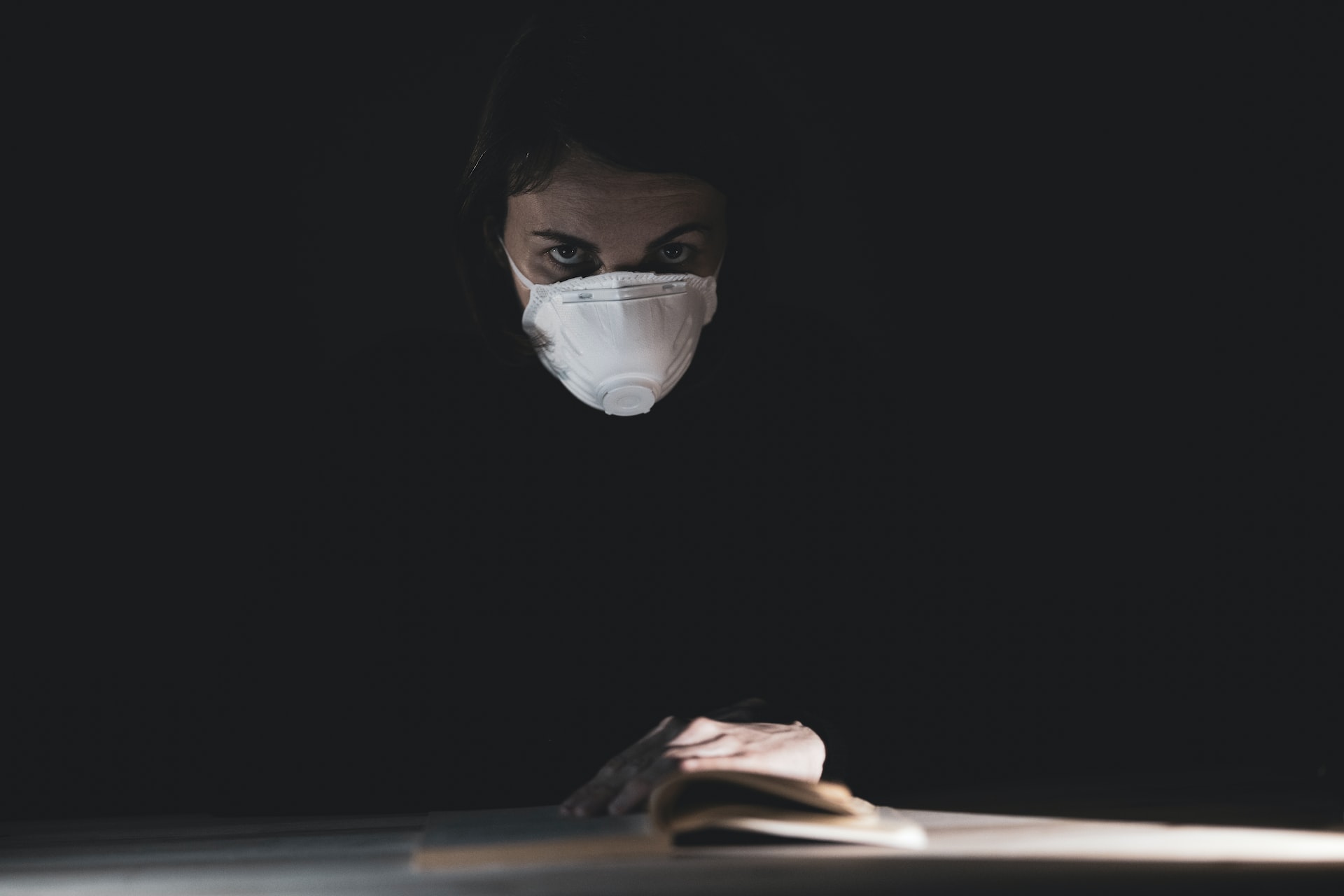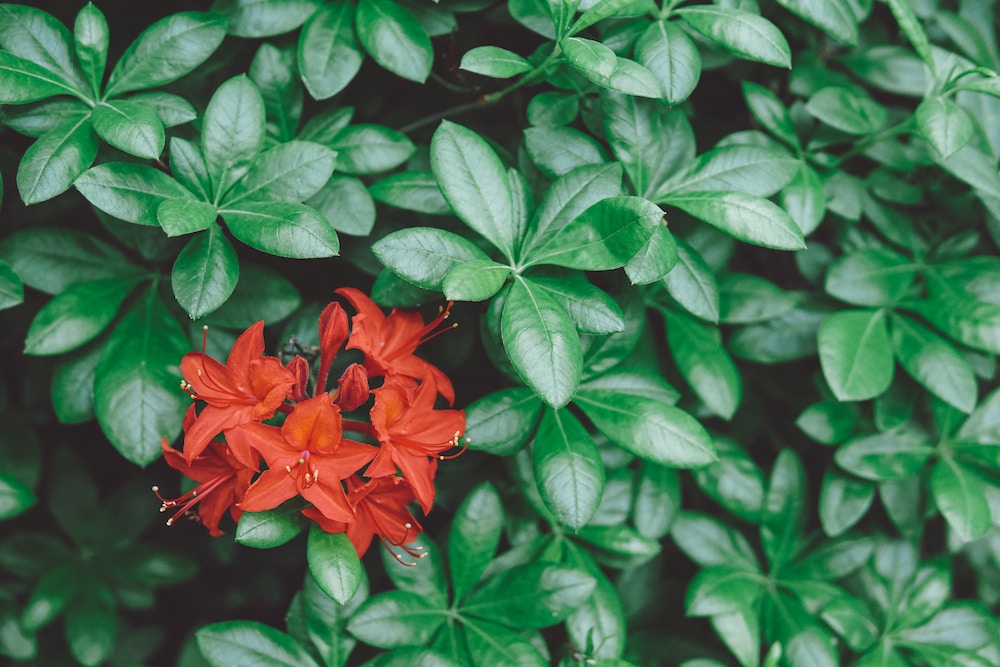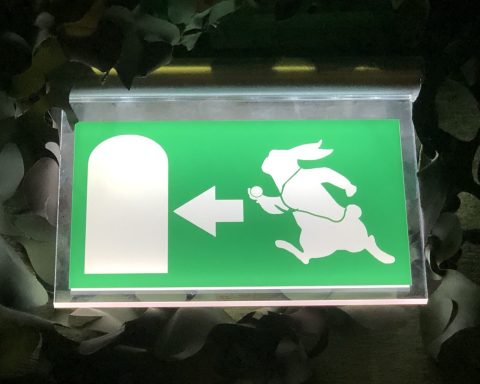Mark Pearson (ORCID: 0000-0001-6749-3565) is an Assistant Professor at the School of Health Sciences, University of Nottingham.
Prerna Singh is a Research Officer at the Royal College of General Practitioners.
Heike Bartel (ORCID: 0000-0001-7534-6573) is a Professor of German Studies and Health Humanities at the School of Cultures, Languages and Area Studies, University of Nottingham.
Gail Allsopp is Medical Director of Clinical Policy at the Royal College of General Practitioners.
In August 2022 it was estimated that 1.8 million people (2.8% of the population) were suffering from ongoing symptoms 4 or more weeks after a COVID-19 infection in private households in the UK.1 Services and funding for care of these patients vary across the four countries, but in England, NHS England report that 1500 people are referred for specialist help each week.2
The voice of those with ‘long COVID’ has been dominant since people were first identified who did not recover from COVID-19 within 4 weeks in 2020. Their passion and drive, mixed with at times frustration and exasperation, has helped move the health and care system forward to recognise, understand, and invest in the disease.
Organisations such as ‘Long Covid SOS’ are still central to the public voice, holding clinicians, politicians, and healthcare leaders to account, while at the same time giving their time for free to help educate clinicians across the UK to understand the reality of living with persistent COVID-19 symptoms.3
“Their [people with long COVID] passion and drive … has helped move the health and care system forward … “
Not all of those with persisting symptoms, however, want to talk about their experience of the disease, their experience of the health and social care response, or the impact on their individual lives; but all have their story to tell. Many describe not being listened to, leading to the belief that ‘finding the right GP’ was a key component to being understood and believed.4
The Royal College of General Practitioners produced their ‘Top tips for GPs’ on the long-term management of COVID-19 in 2020,5 with the first key learning point being ‘Believe your patient, listen, show empathy and acknowledge the diagnosis’. This of course is the bedrock of the doctor–patient relationship.
Subsequently, national and international guidance has also emphasised the importance of listening and believing those with persisting symptoms, validating the illness, and ensuring the person is heard. Little new additional robust evidence on the pathophysiology or treatment options are available at the current time.6
So how should GPs listen to those who can teach us so much about this disease that 2 years ago none of us knew existed? The patient consultation and history are key, but there are also other ways, more creative ways, that some people may choose to articulate their symptoms, suffering, and loss.
For example, in primary care people often write lists, or send photographs; GPs may receive a letter from a relative, or a drawing from a child and never question why. But seldom are these creative expressions actively encouraged or patients invited to bring in a creative expression representing the effect of their illness on them, their family, and their lives. However, a creative representation may help a clinician to better understand the impact the disease has had, and this new insight may begin a conversation to help in the first steps of recovery.
“… a creative representation may help a clinician to better understand the impact the disease has had … “
Creative long COVID
In 2021, following ethical approval from the University of Nottingham (reference: R2021116), working with long COVID patient support groups we asked people to submit creative expressions to explore their experience of long COVID. Any creative form was welcomed, but we primarily focused on pieces of creative writing and poetry, which could be submitted anonymously, if preferred, via an online portal.
We were humbled by the response. The words, poetry, music, and art from those who had not been ‘heard’ before was astounding. Submissions showed the impact on day-to-day lives, on families, children, and communities. The loss of oneself to the fear of a never-ending illness, with the resulting loss of hope that many people feel as a result.
While the poems have been formally analysed to aid knowledge of the disease; with permission, we wanted to ensure the submissions were shared more widely, especially with those most likely to see people at their first presentation in the community.
The clinicians who worked on the creative long COVID research project learnt much about the disease and its impact from the poems submitted. But, the team also reflected on the impact of the helplessness they as clinicians had felt at the beginning of the pandemic. At that time they were treating people with an unknown disease who had long-term complications that they had no understanding of. With no treatment to offer, the power of the doctor–patient relationship became the only thing they had. There was a lack of being able to ‘do’ anything to ease the burden of the disease and the responsibility of trying to navigate their way through the system not yet set up to help weighed heavily.
The infamous Sir James Mackenzie was known to be emotionally involved with his patients, suffering with them.7 GPs too suffered with patients during the pandemic, and this is well documented. Now, with the long-term effects of COVID-19 continuing to emerge, this suffering was, and is still, no different. People continue to suffer, and without effective treatments or consistent access to rehabilitation lead clinicians continue to suffer alongside them; frustrated, yet doing their best to understand and listen, without effective treatments or a cure.
“The words, poetry, music, and art from those who had not been ‘heard’ before was astounding.”
Mutual recovery based on creative practice is a concept proven to help carers, clinicians, and patients.8 Reading the poems, seeing the art, and listening to the music submissions certainly helped the clinicians in our team to reconsider the effect of the pandemic and treating the long-term effects of COVID-19 on them as practitioners and individuals.
They reflected on how they dealt with, and continue to deal with, the uncertainty of a new and evolving disease process with no obvious cure. It helped them understand that patients’ anger and frustration was not because of them, but merely a reflection of their adjustment to a new way of living, not knowing if they would ever recover.
Importantly, within the submissions was also a ray of hope and a longing to get better. The hope and desire to heal, improve and to get back to their ‘normal’ life shone through. This in turn gave us hope. It helped us to remember that we support our patients through the difficult times, share the grief with them, and ‘suffer’ alongside them, but we also share their hope of getting better, share their desire to improve, and celebrate with them when small improvements are seen. This is the power of the doctor–patient relationship. Remembering this helped our team realise that while we wait for the research to catch up, there is so much that we can still do.
The submissions
The research team selected four poems to include in this article as we felt that these provided an excellent insight into the lived experience of long COVID reported in the submissions. The first poem titled ‘My new un-normal’ appears to be a reference to the phrase ‘the new normal’, which became rather ubiquitous during the pandemic. This poem captures what ‘normal’ life has become for the author while living with long COVID.
My new un-normal
Survived, but just surviving.
Better, but not better.
Alive, but missing.
Learning to breathe again, learning to just breathe.
Watching leaves, watching screens.
Bird song, meditation gong.
Dressing up, living in pyjamas.
Re-connecting with old friends, making new covid friends.
Online zooms in party rooms, garden face to face at a distance that is safe.
Parents sleeping, kids cooking, roles reversed for better or worse.
Not knowing, [nobody knows].
Trying…, accepting help.
Heart skipping for all the wrong reasons.
Pain, more pain, foggy brain.
Sweats and chills, popping pills.
Appointments, disappointments.
Swimming again, crashing again, swimming again because the joy of water is worth the crash.
Not sleeping, then sleeping but still needing to sleep.
Exhausted by the exhaustion.
Prioritising, letting go.
Overwhelmed, supported.
Frustrated, thankful.
Not really a new normal, a new un-normal.
By Jo House, who has had long COVID since March 2020, poem written when 6 months in. First poem written since a child. Still have long COVID at 18 months.
The second poem titled ‘It’s the virus that just keeps on giving’ seems to capture something of the temporal nature of long COVID. A condition that, for the author, appears to just keep going without hope of resolution.
It’s the virus that just keeps on giving
You count the days at first, 5 days, then 10, since your positive day.
Then it turns into weeks.
2 weeks, then 5 weeks.
Then it shifts and suddenly it’s months.
3 months, then 6 months.
It’s now nearly 9 months, and you’re just in limbo.
But it is going to be over soon they say.
It’s the virus that just keeps on giving.
The symptoms were different, not what they had said.
The pain in the joints, shifting from place to place.
The weakness and aches, the shakes and vibrations. It was all too much at the time.
But it is going to be over soon they say.
The weeks went by and new symptoms appeared, breathing continued to be laboured, frustrating and debilitating.
The tiredness was all consuming. Fatigue was and still is controlling.
The fog in my brain is a constant drain, never lifting, shifting or drifting. To be unable to finish a sentence or to be unable to remember when, why and what, has been so terrifying.
When will it all clear and leave me be.
But it is going to be over soon they say.
Each month goes by and I try to remember this isn’t for ever. This isn’t me. This won’t define me. But it’s so hard. When those around think you should just walk it off, move a bit more or tell you ‘but you look so well’.
It’s exhausting, draining, humiliating, shaming etc etc.
But it is going to be over soon they say.
The joint pain is beyond belief. Shifting from hand to toe, hips to knees. No amount of tablets, rest or turmeric seems to help.
The exhaustion is teased by insomnia. Rest and sleep is advised but the hours pass by and the dawn appears in front of you puffy eyes.
But it is going to be over soon they say.
It’s the virus that just keeps on giving.
But it is going to be over soon, I pray
The third poem considers the impact of long COVID on identity. The author explores the way in which their sense of self has been fundamentally altered by long COVID and they now find themselves trying to construct a new identity and make meaning from their experiences.
What am I doing here?
Is this me?
A new me?
What would you do
If there was a new you?
Someone you didn’t recognise?
What would you say, to the people who say
Oh yes I’ve been tired too
Don’t worry I forget things too
I can’t find words when I’m tired either
You look so well
You look better
Can’t they see that they don’t feel the same?
Why is it so hard to understand?
Why is it so difficult to explain?
Will the old me come back?
Or will I always be this way?
Somehow small
Less able
With less opportunity
Should I quit my job?
I tried so hard to get here
I sacrificed so much
Will it all be a waste?
Will I regret it?
Or will it be an unexpected change to a new and upgraded version of me?
Will I be a stay at home mum, who won’t miss anything, will be there to teach and cuddle?
Perhaps I will find a new job, more fulfilling than the last?
Will I heal faster without the will I/won’t I stress that I feel every time I think about going back to work?
Is this an intervention from God to lead a slower life?
A more simple life?
Will there be a treatment?
I don’t trust the system anymore.
When did I become so cynical?
I am meant to be young, fit and healthy
How have I ended up on all this medicine?
My world is smaller
I have missed so much
I feel utterly lost
The final poem is one that appears to be written by a father and reflects on the way in which long COVID has not just impacted his life but also that of his children and his sense of himself as a father. It also offers insight into the frustration experienced by people when accessing health services and perceiving that nobody truly understands what they are experiencing.
Woke up this morning feeling great, the mist of awfulness disappeared.
Sun shining, a day of action, I can finally breathe again. Fun filled day of happiness, swings, slides, football and bouncy castles.
Adventures with my child, smiles appear on both our faces.
A smile of genuineness not the one which has recently hit my pain.
Home in the evening, as I sit upon the sofa I sit and look with love. Then as I gaze the mist returns.
Something just isn’t right, exhaustion hits, my chest vibrates, I’ve no control.
Unable to move I lie, my child watching TV oblivious to the covid doom lurking over his father.
Aching arm, banging heartrate, dizziness sets in.
Better safe that sorry says my other half.
Blue lights, whitecoats, blood tests ECGs. All Clear All Clear.
Touch of anxiety they say, THEY DONT EVEN KNOW ME.
When at home, I struggle up the stairs, kiss my child goodnight, thankful his intuitive nature hasn’t come alive. Daddy’s OK.
The tears begin to appear, for one so strong I don’t know why. Head has gone, no one understands, no answers I can find. What can I do?
I’m lost, I’m alone no one cares.
As I lay my head on my pillow, I stare at the shadows above my head, it’s been sixteen months. This covid mist won’t f**k off and leave me be.
This is it for me, it can’t be good, I just wish I could get back to being me.
Fk 2021
Conclusion
The creative submissions gathered during the research and the poems presented within this article provide a unique insight into the lived experience of long COVID. In ‘Reflections on the doctor–patient relationship: from evidence and experience’, Moira Stewart states ‘… in the hands of GPs … patients’ confusion, fear and doubt transform to clarity, relief and assurance … Without the GP in this role, there would continue to be more confusion, fear and doubt. With the GP in this role, sick people recover, sick people find relief from suffering, some sick people fear less, and some sick people are filled with hope. This is general practice’s precious gift to humanity’.9
The gift of the doctor–patient relationship is one of the most precious tools we have — until we find a definitive pathogenesis to explain the persisting symptoms after COVID-19 and then subsequently develop effective treatments, it is the one thing that we can utilise to help our patients, their families, and society as a whole. We should use this precious gift wisely.
Further reading
As part of the creative long COVID project, a detailed analysis of all the creative submissions has been undertaken.10 This analysis provided a unique insight into the lived experience of long COVID, revealing five themes of: identity; social relationships; symptoms; interaction with healthcare systems; and time. As a result of this analysis, the authors propose that adjustment reaction and loss of sense of self could be added to the list of common symptoms associated with long COVID. An open access copy of this article can be found at: https://doi.org/10.1111/hex.13602.
References
1. Office for National Statistics. Prevalence of ongoing symptoms following coronavirus (COVID-19) infection in the UK: 4 August 2022. 2022. https://www.ons.gov.uk/peoplepopulationandcommunity/healthandsocialcare/conditionsanddiseases/bulletins/prevalenceofongoingsymptomsfollowingcoronaviruscovid19infectionintheuk/4august2022 (accessed 28 Sep 2022).
2. NHS England. The NHS plan for improving long COVID services. 2022. https://www.england.nhs.uk/publication/the-nhs-plan-for-improving-long-covid-services (accessed 28 Sep 2022).
3. Dorman L, Watson M, Allsopp G. GP response to post COVID-19 syndrome (‘long COVID’). 2021. https://bjgp.org/content/gp-response-post-covid-19-syndrome-long-covid (accessed 28 Sep 2022).
4. Kingstone T, Taylor AK, O’Donnel CA, et al. Finding the ‘right’ GP: a qualitative study of the experiences of people with long-COVID. BJGP Open 2020; DOI: https://doi.org/10.3399/bjgpopen20X101143.
5. Royal College of General Practitioners. Management of the long term effects of COVID-19: the RCGP response and top tips for caring for our patients. 2020. https://elearning.rcgp.org.uk/pluginfile.php/149508/mod_page/content/72/V2GA%20for%20publication%20updated%20Management%20of%20the%20long%20term%20effects%20of%20COVID-19_formatted_29.10.20.pdf (accessed 28 Sep 2022).
6. National Institute for Health and Care Excellence. COVID-19 rapid guideline: managing the long-term effects of COVID-19. NG188. 2020. https://www.nice.org.uk/guidance/ng188 (accessed 28 Sep 2022).
7. McConaghey RMS. Sir James Mackenzie, M.D. 1853–1925. General practitioner. J R Coll Gen Pract 1974; 24(144): 497–498.
8. Crawford P, Lewis L, Brown B, Manning N. Creative practice as mutual recovery in mental health. Ment Health Rev J 2013; 18(2): 55–64.
9. Stewart M. Reflections on the doctor–patient relationship: from evidence and experience. Br J Gen Pract 2005; 55(519): 793–801.
10. Pearson M, Singh P, Bartel H, et al. Creative long Covid: a qualitative exploration of the experience of long Covid through the medium of creative narratives. Health Expect 2022; DOI: 10.1111/hex.13602.
Featured photo by Engin Akyurt on Unsplash.








